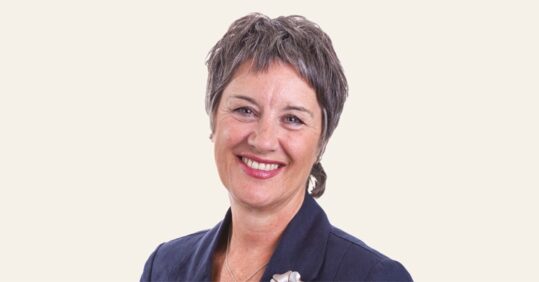Nurses’ expertise is essential to support non-registered vaccinators

When estimates of the vaccination programme revealed the need for an expanded workforce, one of the most striking innovations was the drafting of non-registered staff as vaccinators. A national protocol now governs the administration of a prescribed vaccine by a non-registered worker, with crown immunity covering all service providers.
This safeguards the use of immunisers who are not registered healthcare professionals. St John Ambulance has trained 30,000 volunteers to undertake the role.
Related Article: Diagnosis Connect service will link people to advice from charities
As immunisation experts, nurses have been the backbone of this national programme. GP networks have largely used their own primary care nurses to staff their centres, while larger NHS centres have employed nurses alongside non-registered vaccinators ranging from airline staff to furloughed office workers. Prescribed training is provided on safe administration of vaccines, anaphylaxis and resuscitation, patient assessment and consent. Professional accountability, however, remains with the nurse.
Yet nurses are in short supply. Although 15,000 have returned to a temporary NMC register to support the pandemic effort, there were already 50,000 NHS vacancies. The NMC register has increased by 2% this year but the overall picture is grim and will get worse when those who delayed their retirement to support colleagues finally go.
Related Article: Prescribing in England to be led by a single national formulary
And as nurses return to their substantive posts, there is an increasing shortage at vaccination centres, with millions still to be vaccinated. In the relentless bid to vaccinate the remaining public, even more non-registered immunisers are being appointed. Though welcome, their training is not always consistent, which can be challenging for the nurses who are required to oversee them. Supervising up to six simultaneous consultations in a public space is not only difficult in practical terms but can call for a high level of diplomacy when intervention is needed without affecting the credibility of the process.
There are anecdotal reports of conversations in front of patients exposing differing views between the accountable nurse and the immuniser, potentially undermining patient confidence. Some keen non-registered immunisers who have held senior positions may display levels of confidence not matched by knowledge or insight.
Nurses should be able to challenge such misplaced confidence without being criticised. We have an excellent record of successful delegation to non-registered staff: upskilling healthcare support workers, expanding services and keeping patients safe. As the most trusted profession we support new models of safe, cost-effective care.
Related Article: Advice on Guillain-Barré risk for adult RSV vaccine updated by MHRA
The use of enthusiastic non-registered workers during the pandemic has set a precedent for the vaccination of the public but we should remain mindful of the evidence that organisations with a higher ratio of qualified nurses also have higher safety outcomes.

See how our symptom tool can help you make better sense of patient presentations
Click here to search a symptom


As immunisation experts, nurses have been the backbone of this national programme.



